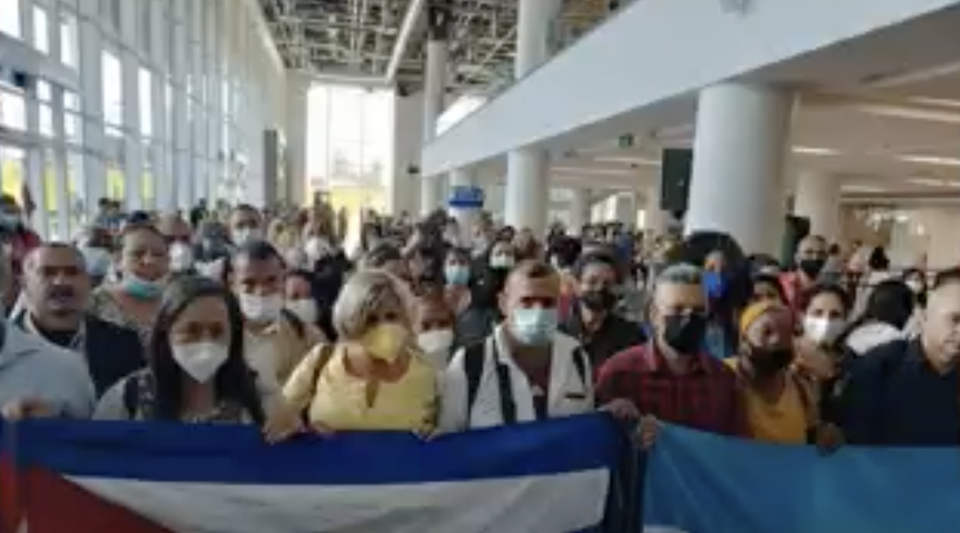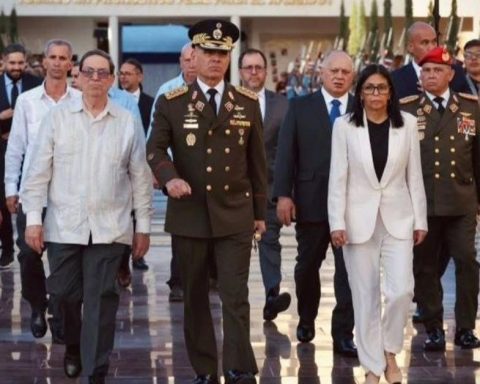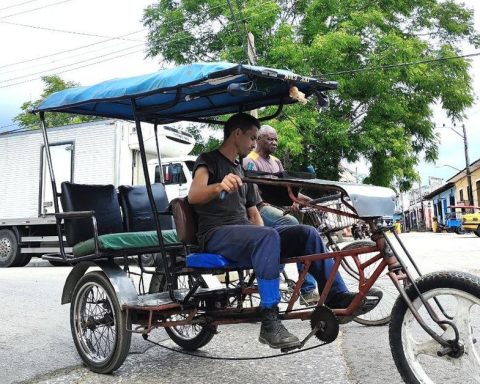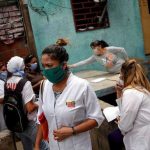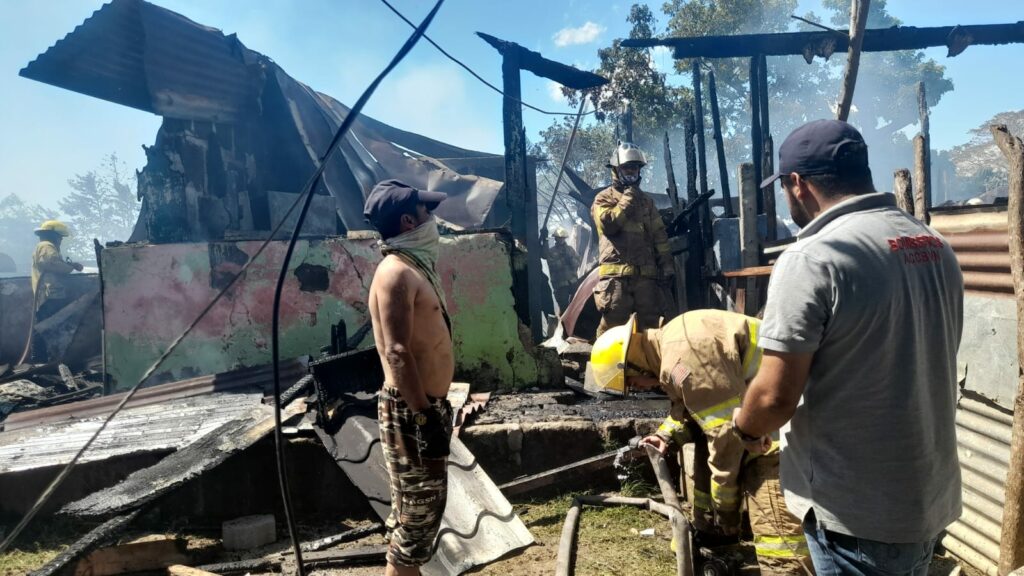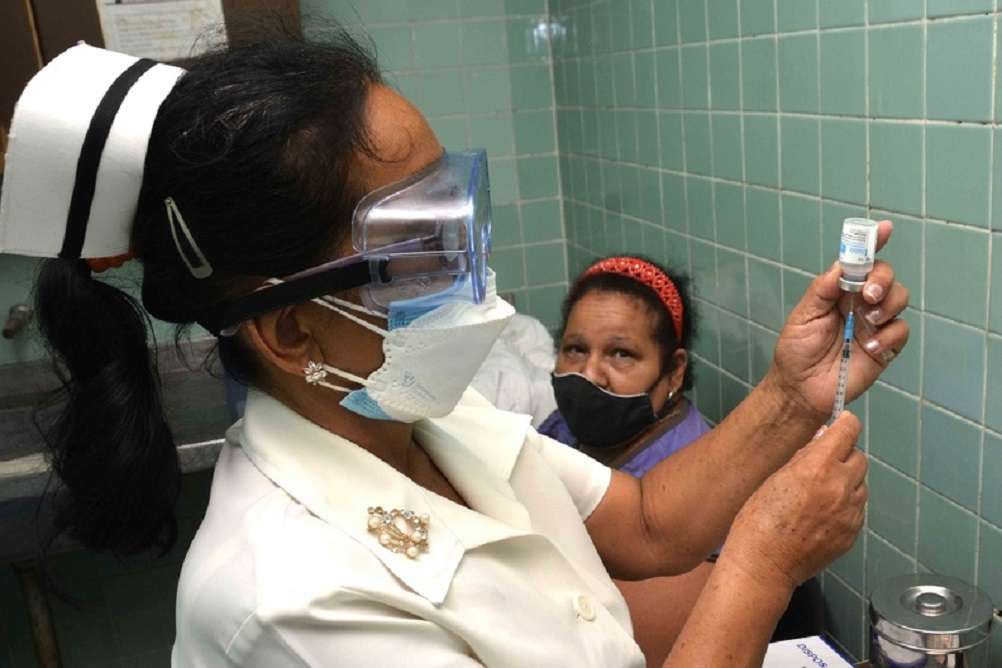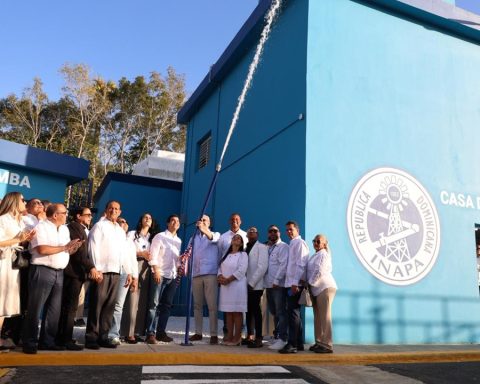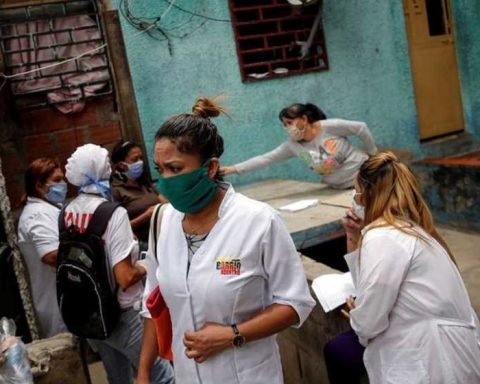The 123 Cuban teachers who will train teachers in Honduras will earn approximately $406 a month, according to account this wednesday the honduran newspaper The Herald in an article in which various analysts describe the investment by one of the poorest countries on the continent as wrong.
The newspaper claims to have agreed to the agreement, signed between Havana and Tegucigalpa on October 21, 2022, and indicates that the amount allocated to each professional is 10,000 lempiras per month and a total of 14.7 million per year (just over half a million of dollars). The total amount for the three years initially agreed is, as already announced, 40 million lempiras (1.6 million dollars).
“I understand the issue of solidarity, but in reality this is not any cooperation because they are services that the Cuban regime sells very dearly, the same thing that happens with doctors,” said Julio Raudales, rector of the José Cecilio del Valle University ( UJCV) to The Herald.
The newspaper has consulted with several experts who, among the defects they see in the agreement, point out that the money could have been used for a national project and to hire Honduran teachers and the unemployed. Specialists believe that it is an “initiative that arises from an erroneous and imposed ideology” and that it will “weaken” the institutionality of Honduras in its own educational system.
“This is not cooperation because they are services that the Cuban regime sells very expensive, the same thing that happens with doctors”
The implementation of the “Yo sí puedo” program aspires to educate 700,000 people during the term of Xiomara Castro, who is close to the Government of Havana, and although the program is very complete and works, specialists affirm that it has nothing new and that it does not has been proposed in Honduras.
“The document is well done, but it is not superior to a program that has been carried out by Hondurans. In comparison, the Nacho [un libro escolar empleado en el país] is better elaborated than this methodology”, explains Dennis Cáceres, director of Education of the Association for a More Just Society (ASJ).
The specialist mentions several projects that were applied in Honduras for adult literacy in previous years and insists that there are no great differences. “In the end, literacy is based on generator words and context, with the objective that people know how to read, add and subtract. Something that our programs already have,” he alleges.
The planned classes last two and a half hours and are spread over three days a week, and the exercises consist of the study of letters and syllabic combinations, but some experts warn that “if the roles are not agreed correctly” there could be indoctrination creeping into counseling.
Another of the specialists consulted, Johnny Varela, believes that political attention is being sought by launching a new proposal instead of seriously addressing a “true educational refoundation.”
“The document is well done, but it is not superior to a program that has been carried out by Hondurans”
The program has been the center of controversy since its announcement, when at the beginning of January the imminent arrival of ten technicians from the Island was announced to start implementing the program, which has already been exported to about 43 countries before. Then a promotional video from the Secretariat for Strategic Planning, one of the signatories of the agreement, which advanced a new educational system for Honduras, generated discomfort. “It will be universal, inclusive, participatory, secular and scientific. Just as it should be and not as what is being applied.”
The video continued praising the Cuban educational system, “which is one of the best in the world and will turn the exclusive system into an inclusive one, and we will begin to raise the cultural level of the population by deepening values such as solidarity and cooperation.”
In the images, a fair-skinned and good-looking young woman details in just under two minutes, smiling and with exaggerated gestures, the importance of the agreement. “The system prioritizes four aspects in teaching: literacy, universal access to education, the importance of teachers and education focused on social change,” she explains, referring to education in Cuba.
The opposition, led by the Honduran National Party (PNH), also rejected the initiative, described as “Cuban interference”, and spoke of “shady agreements”. “There are many demands from Latin American countries about the political and ideological presence of Cuba on the continent, which uses health and education as a pretext for its purposes,” said a spokesman.
________________________
Collaborate with our work:
The team of 14ymedio He is committed to doing serious journalism that reflects the reality of deep Cuba. Thank you for accompanying us on this long road. We invite you to continue supporting us, but this time becoming a member of our newspaper. Together we can continue transforming journalism in Cuba.
